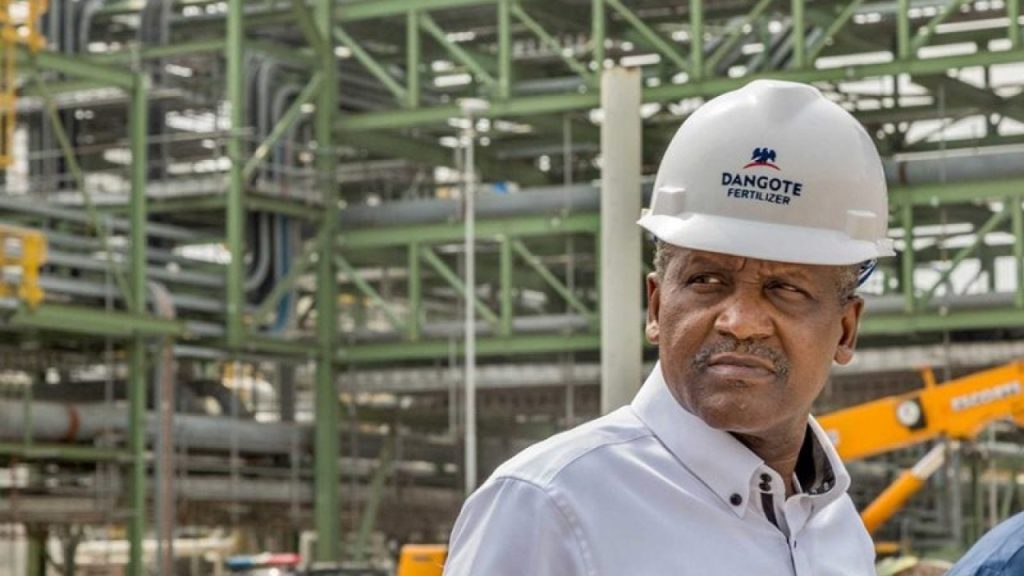How Dangote can stop its workers from joining NUPENG, PENGASSAN — Hon Akinlaja, ex-labour leader

By Emma Nnadozie
Former General Secretary of the National Union of Petroleum and Natural Gas Workers, NUPENG, Honourable Joseph Akinlaja, has warned that the only way Dangote Refinery can prevent its workers from joining existing oil industry unions is by amending Nigeria’s labour laws as stipulated in the constitution.
According to him, the country’s constitution and the 1978 labour decrees clearly classify oil workers: junior staff under NUPENG and senior staff under the Petroleum and Natural Gas Senior Staff Association of Nigeria, PENGASSAN. Any attempt to divert them to other unions is illegal.
In this interview, the veteran labour leader, who was also a member of the House of Representatives, reflects on the birth of NUPENG, the struggles that shaped the union, and the football-like teamwork of its founding leaders. He explains why Dangote must work with established unions instead of attempting to isolate workers, stressing that cooperation is the only way forward in managing Nigeria’s most strategic sector.
You have been described as one of the founding fathers of NUPENG. How did it all begin?
Nobody can drink more water than someone who has drowned in a river. Nobody can be more experienced in NUPENG than Akinlaja.
At the beginning, we were three: Chief Frank Ovie Kokori (of blessed memory), myself, and Comrade Elijah Okougbo (of blessed memory). Kokori was our Rashidi Yekini, Akinlaja was J.J. Okocha, and Okougbo was Amokachi, “the Bull.” We combined like a football team. Kokori scored the goals, Akinlaja created the chances, and Okougbo neutralised threats, even if it meant taking a red card. That combination made NUPENG strong.
What was the background to NUPENG’s creation?
In 1977, I was part of the steering committee that drafted NUPENG’s constitution. Then in 1978, the Obasanjo regime promulgated Decrees 21 and 22.
Before then, Nigeria had 986 trade unions; every company had its own. Some unions leaned towards the Soviet Union, others towards the West. The government couldn’t tolerate this and restructured unions along industrial lines. That’s how 42 industrial unions were formed and affiliated to the Nigerian Labour Congress. NUPENG became one of them.
The foundation officers included myself, Chief Kokori, Elijah Okougbo, and John Ernest Dubre, who became our first president.
How did petroleum tanker drivers come into the picture?
The law that created NUPENG clearly states “including petroleum tanker drivers.”
At the time, petroleum transport was dominated by Lebanese companies like Safieddin and Transcontinental. Only one Nigerian firm existed, Transnab in Ibadan. Later, as pipelines were built and haulage deregulated, Nigerians began buying tankers; some had one, some had two, and NUPENG organised them at depots nationwide.
That’s also how independent marketers emerged, after the government insisted Nigerians, not foreigners, should dominate marketing. Thousands registered.
What about depots and private marketers?
Initially, the Nigerian National Petroleum Corporation, NNPC (now Nigerian National Petroleum Company Limited, NNPCL), ran 21 depots linked by 5,000 km of pipeline. Later, private depots sprang up—Zenon Oil (Femi Otedola), Capital Oil, Ascon, and others. Today, there are almost 190 private depots across Nigeria.
Which unions and associations dominate the downstream sector today?
NUPENG, junior oil workers, including tanker drivers; PENGASSAN, senior oil staff; the National Association of Road Transport Owners, NARTO, transport owners; and the Independent Petroleum Marketers Association of Nigeria, IPMAN, independent marketers.
With Dangote Refinery now in the mix, what’s the situation?
Dangote must harmonise with the unions. They cannot fight NUPENG because the constitution and labour laws classify workers: junior staff in NUPENG, senior staff in PENGASSAN. Freedom of association doesn’t mean oil workers can join a textile union. Just as I, from Ondo State, cannot join Ndigbo in Enugu. Freedom has limits. Unless the law is amended, Dangote cannot stop workers from joining NUPENG.
Some people talk of EFCC probing NUPENG. Is that possible?
How? Those making threats, did they contribute money? Are they members of NUPENG? It is only the Ministry of Labour and Employment, through the Director of Trade Union Services can audit industrial unions in line with extant laws.
What’s the way forward?
In industrial relations, there are two approaches: conflictual and consensual. Dangote should sit with NUPENG. Oil is Nigeria’s jugular vein; if NUPENG stops work nationwide, can Dangote alone cope? They risk creating a monopoly and even a security problem.
What advice would you give government?
The government should keep mediating, but appeal more to Dangote. Running a 650,000-barrel refinery is already a huge challenge. You cannot carry an elephant on your head and still use your leg to dig for crickets.
And what advice to NUPENG?
NUPENG too must be responsive. If Dangote makes genuine overtures, they should respond positively. After all, nobody claps with one hand; you need both hands to clap.
The post How Dangote can stop its workers from joining NUPENG, PENGASSAN — Hon Akinlaja, ex-labour leader appeared first on Vanguard News.







